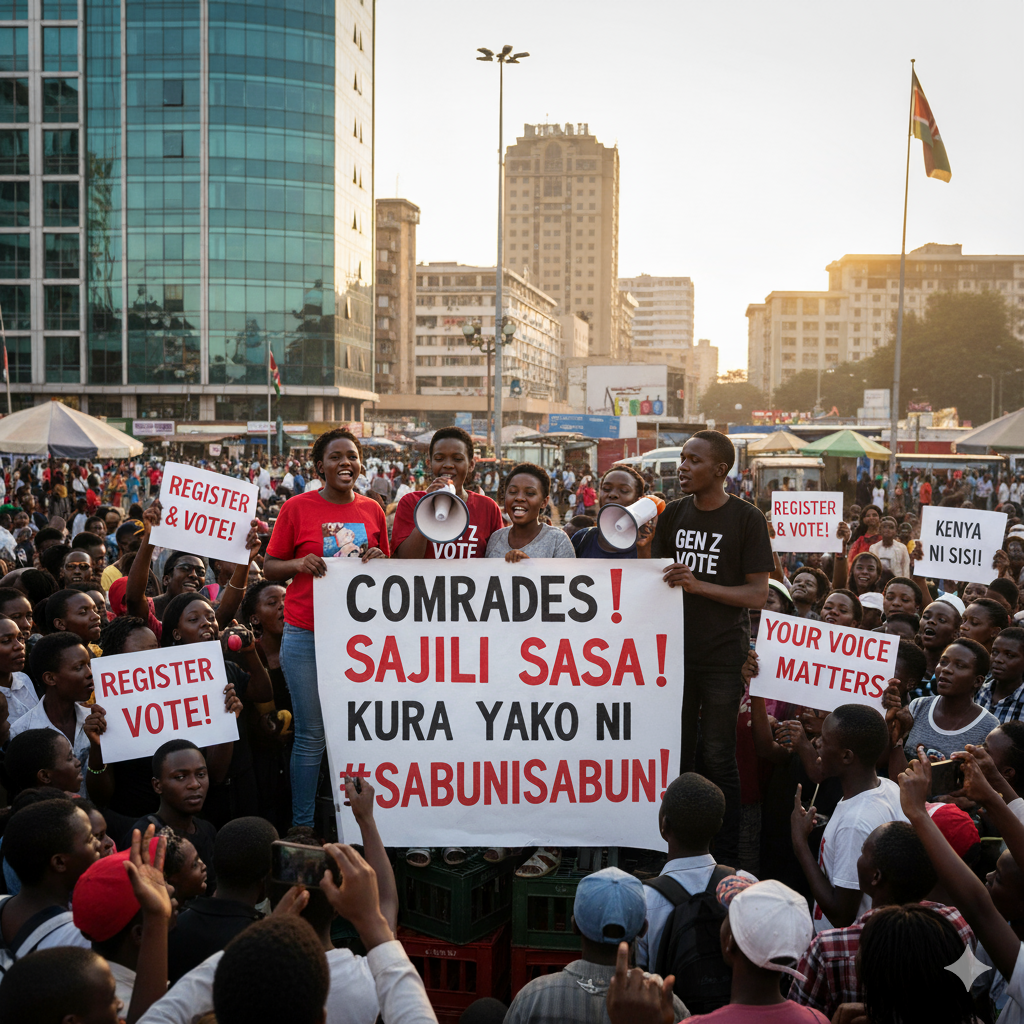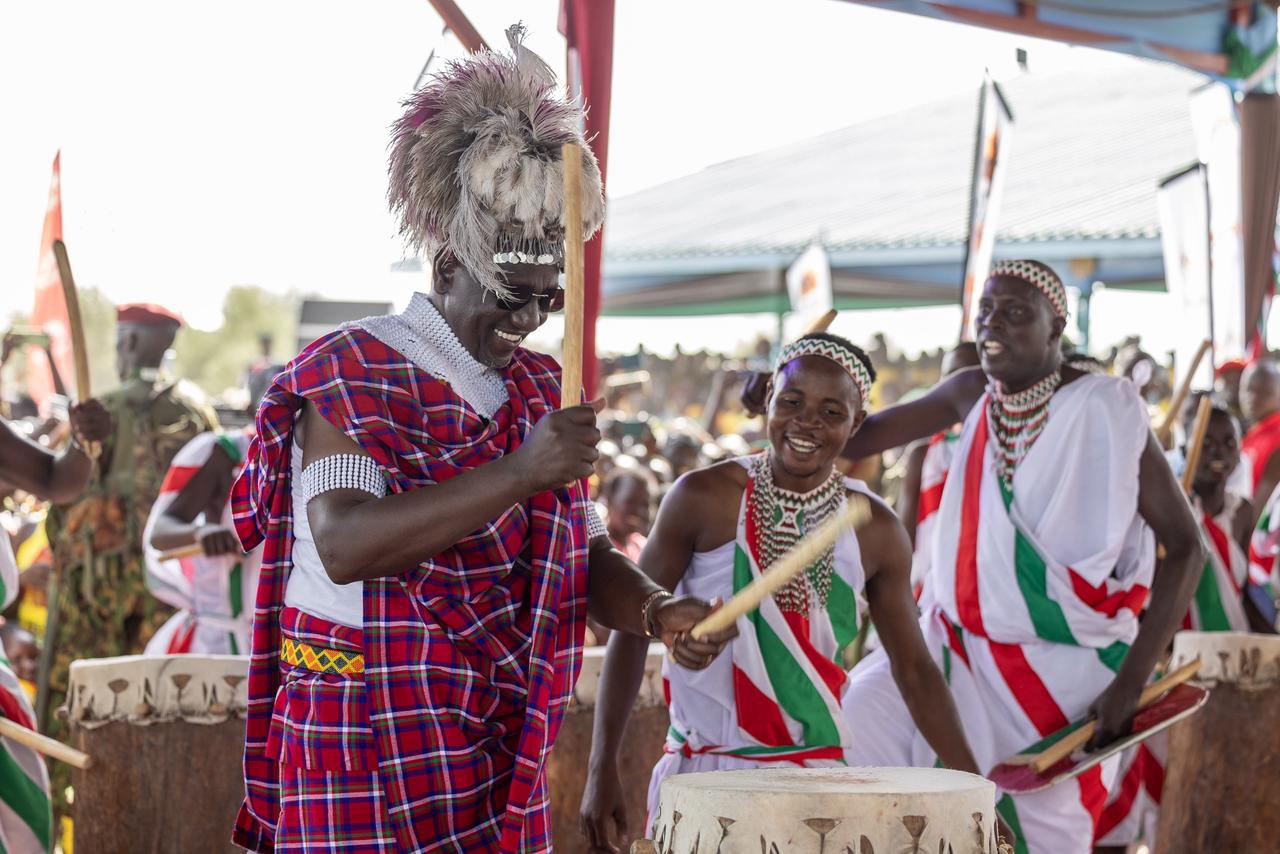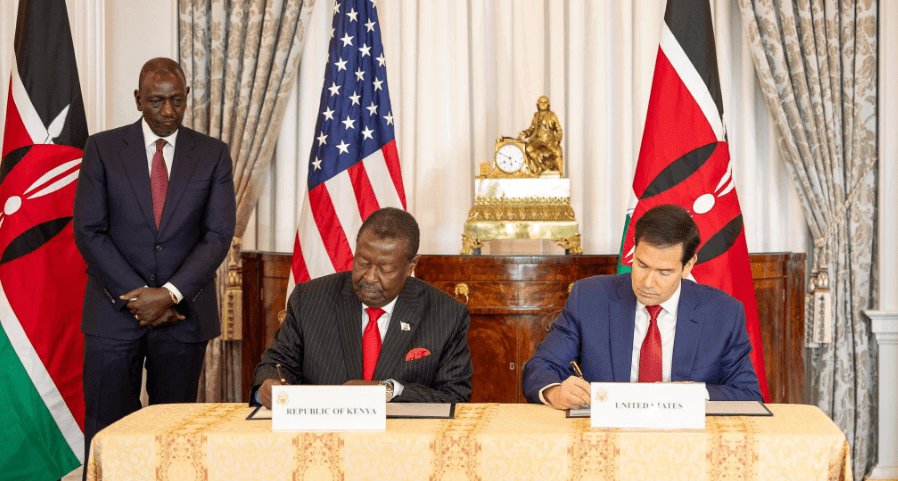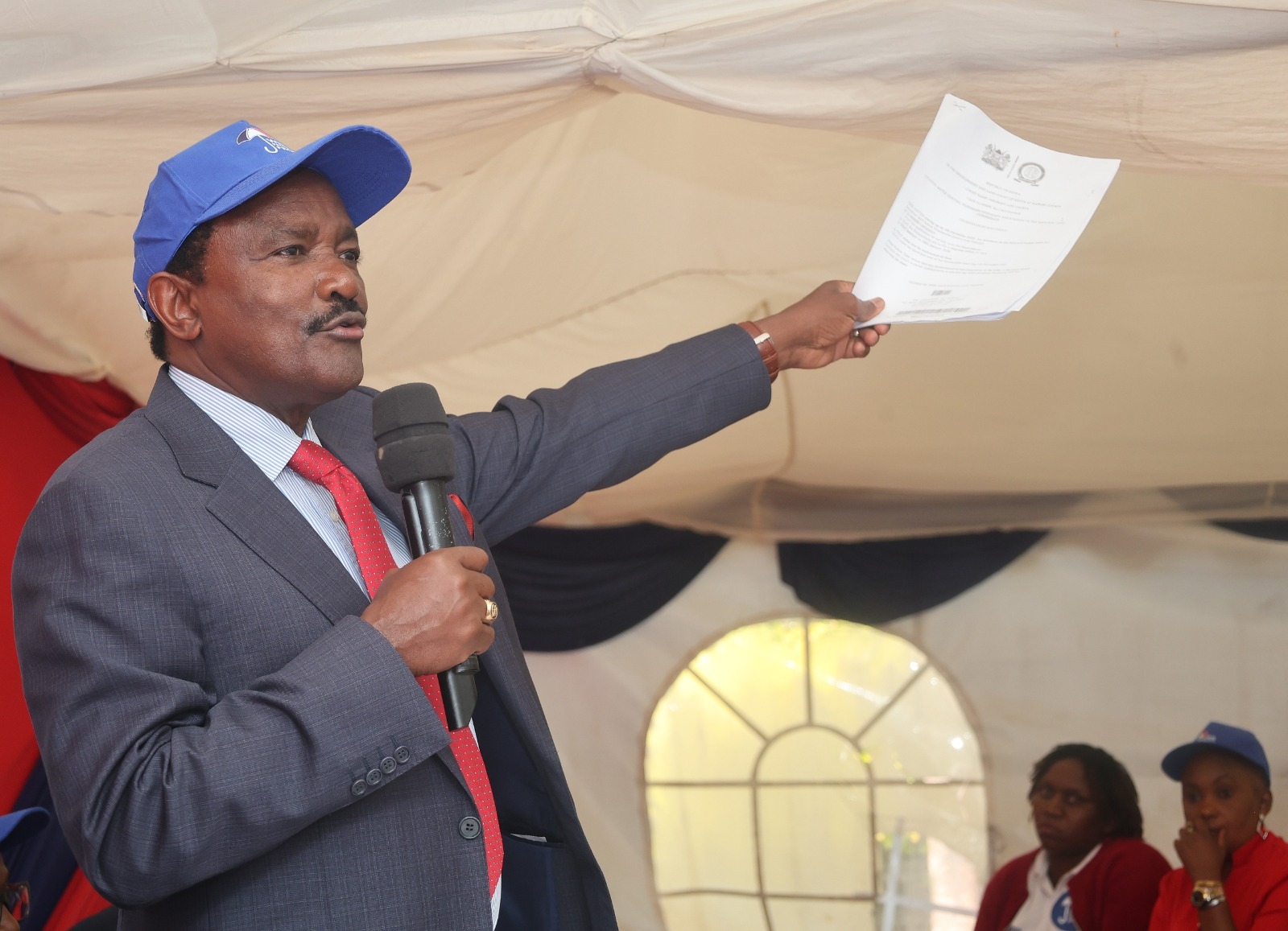
 Gen Zs rallying their colleagues to turn up for voter registration ahead of the 2027 general election./AI ILLUSTRATION
Gen Zs rallying their colleagues to turn up for voter registration ahead of the 2027 general election./AI ILLUSTRATIONKenya’s Generation Z has taken voter mobilisation into their own hands, launching a bold social media campaign under the trending hashtag #SabuniSabuni.
The movement aims to rally young people to register as voters ahead of the 2027 General Election.
Unlike in the past, when mobilization was left to the Independent Electoral and Boundaries Commission (IEBC) and politicians, this time Gen Z is leading the charge.
Through memes, witty banter, and viral posts, young people are challenging each other to take responsibility for their future by showing up at registration centers.
Popular memes circulating online include messages like “Don’t call me for favours if you haven’t registered as a voter” and “Guza jirani na umuulize kama amerigester” a playful nudge for peers to check on their neighbors’ registration status.
The phrase “Sabuni Sabuni” literally “soap” in Swahili symbolizes cleansing Kenya’s political system of corruption and broken promises.
The campaign draws inspiration from recent youth-led protests and activism, urging a shift from street demonstrations to the ballot box as a more powerful tool for change.
With Kenya’s youth making up the largest voting bloc, Gen Z hopes their collective action will tip the scales in the next election.
As one online post put it: “2027 is not about watching. It’s about washing.”
SirJohnKE said “Here we are, register now. #SabuniSabuni.”
Another X user, Rami'rez Nelly said “register as voters and spearhead the change your mind has been yearning for Gen Z's, it is our time to shine. #SabuniSabuni.”
Friedrich added “There are 10 million Gen Zs out there that are eligible for voter registration. Register today and your long cry to get president Ruto out of office will come to an end in 2027. #SabuniSabuni,” he said.
Kachampez said the only campaign for now as youths is to push for mass voter registration.
I am Chege said “#SabuniSabuni. Register as a voter, safisha nchi. Carry your ID or your passport and register today.”
Yoko Ndegwah said “Kura yako ni silaha pia. Chukua kura
tuangamize viongozi wafisadi. #SabuniSabuni.”
On Monday, IEBC began the voter registration ahead of the upcoming general elections.
IEBC said it is an honour to launch the commencement of the Continuous Voter Registration (CVR).
The Electoral Commission said the exercise is not simply an administrative duty but it is the heartbeat of Kenyan democracy.
In Kajiado, the chairman, commissioners, and the Governor of Kajiado Joseph ole Lenku were on the ground to mark the important milestone.
“No eligible voter should be left behind. We must make registration accessible and convenient so that every voice is heard,” Ole Lenku said.
“I urge every young person turning 18 to seize this opportunity and register. Your vote is your power, and your power begins with registration.”
Kenyan citizens aged 18 and above can now access the Independent Electoral and Boundaries Commission (IEBC) services through Continuous Voter Registration, starting Monday, September 29, 2025.
Services include registering for the first time, correcting or updating voter details, transferring registration to a new electoral area, and verifying existing details.
Eligible citizens must hold a valid Kenyan ID or passport, must not have previously registered as voters, must not have committed an election offence in the past five years, and must not be of unsound mind.
Kenya’s youth form the largest demographic in the country, making their participation essential in shaping leadership and policy decisions that affect areas such as education, employment, and governance.
THE NUMBERS OVER THE YEARS
It was just after Nairobi’s sunset when Amina, 22, posted a simple but powerful video on TikTok: “Do not let them decide our future without us.”
Her voice was calm, her message sharp. The next morning, dozens of her friends had shared it; in the evening, hundreds. This ripple becomes a wave.
Now, Gen Z—roughly Kenyans born after 1996—had begun organizing in ways unseen in previous election cycles.
In the 2022 general elections, Kenya recorded 22.12 million registered voters, with youth aged 18-34 making up 39.84% of that register. But despite their numbers, many young people stayed home: turnout was only about 65.4%, the lowest in 15 years.
So, between social media chats in WhatsApp groups, local youth forums in estates from Kisumu to Mombasa, and online campaigns on X and Instagram, Gen Z began to spread the word: registration must happen, voices must be heard, and votes must be cast.
They partnered with civic-education NGOs who were already running voter awareness workshops—many of which noted that only about 47% of respondents were aware of ongoing civic and voter-education initiatives.
IEBC’s plan to register about 5.6 million new voters ahead of the 2027 elections became a clarion call among young people.
Youth organisers pointed out that if fully achieved, Kenya’s register would grow from ~22.12 million in 2022 to nearly 27.8 million voters.
They made “5.6 million” into a symbol: not just numbers, but potential power—enough power to decide who becomes president, who governs counties, who ensures youth issues (jobs, housing, education) are taken seriously.
On the ground, there’s been bark-and-road activism: mobile registration drives at universities, after-church youth groups in rural areas bringing transport to polling stations when election day comes, peer networks pushing reminders via SMS and WhatsApp, and social media challenges (“Screenshot your voter slip”, “#Umeregister”) to create social pressure and accountability.
As 2027 looms, Gen Z, fuelled by digital tools, real grievances, and the sense that “this is ours to lose”, are shaping up to make turnout—not just support—a defining story.
The question is no longer if they will show up, but how many of them will. And when they do, politics in Kenya may never be the same.

















